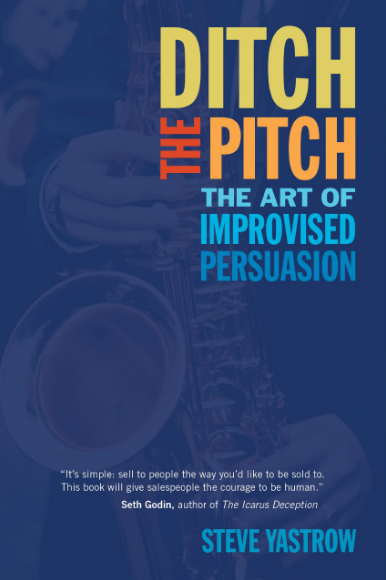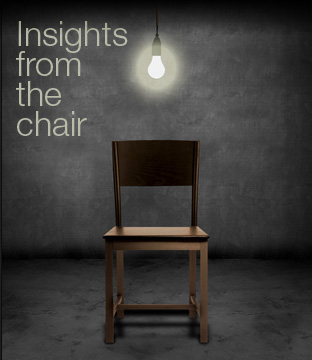Which Pitch Ditch?
 At a recent industry conference, the Global Head of a Media Agency called for the end of “pitching”. The hashtag #ditchthepitch” was launched amid much fanfare.
At a recent industry conference, the Global Head of a Media Agency called for the end of “pitching”. The hashtag #ditchthepitch” was launched amid much fanfare.
A great use of rhyme to get your point across.
And funnily enough the hashtag shares the same title with the 2014 book from Steve Yastrow that “asks us to throw out everything we’ve been taught about pitching to customers.” In an industry that seeks to differentiate itself through creativity, it is somewhat ironic.
However, that aside, without wishing to sound self-serving, let’s look at the speaker’s case for change:
“There is a concern in our industry, and I’m talking for both creative and media agencies here, that when you speak out publicly about what goes on in the pitch, well, there could be some form of retaliation from the client and the pitch consultant community.”
As a member of the pitch consultant community this is news to me. We don’t meet in some cabal. A standard component of the Enth Degree process is discussions with Agencies to advise strengths and shortfalls of their submissions in an effort to improve their future opportunities.
“Now we have hundreds of agencies competing. So back then (Mad Men era), the economics of a pitch, you can argue, made a little bit of sense. Today though, it doesn’t.”
The fact that the industry has diversified and specialised leading to a plethora of Agency types does not lend weight to scrap pitching, if anything, it enables a more streamlined process.
“Hundreds of Agencies competing”? Certainly not in a pitch. Our recommendation is a shortlisting to approximately four Agencies after a simple credentials and introduction process that requires minimal input from candidate Agencies.
“And the biggest victim of the pitch process, is clients. Senior people tend to have to work on pitches because pitches are complicated and there’s a lot of top to top interaction.”
We understand that pitches are a high stakes game. The time invested and referred to in the “Ditch the Pitch” presentation is real. However, as long as we have been running pitches, we have asked that those participating will actually be working on the business. A meeting overloaded with Senior Management, while impressive, is known to be a false representation of the client’s day to day reality.
“The number one problem that clients have is, ‘We don’t get enough senior resource on our account’. Well, the reason is, increasingly, because they’re constantly having to pitch to either retain your business or go for other business because the lifecycle of a client’s tenure has reduced so much that we’re in a perpetual state of pitching.”
So, rather than pushing back on the pitch process, Agencies should back the calibre of their people and field the proposed team (or one of similar calibre) to front the client during the pitch process. It’s what clients are asking for.
It is suggested that “clients (to) choose agencies like they would a law firm, on reputation, portfolio, client references, and a financial proposal”.
While on the surface this may appear a practical and time saving solution, Enth Degree does not agree with this analogy. Law firms deal with “a system of rules which a particular community recognizes as regulating the actions of its members” (Source: Oxford Dictionaries).
Agencies have long argued that they are their client’s business partners, offering creative means of connecting with consumers to influence brand decisions or lifestyle choices. Unlike the law there is no systems of rules here. It is people, lateral thought and execution that differentiates Agencies. This is best demonstrated in a practical pitch presentation where marketers can glean a real understanding of its people, processes and potential. Choosing on reputation, portfolio, client references, and a financial proposal disguises and demeans the Agency’s expertise.
Further, a law firm’s record of wins and losses is essentially public knowledge. This is not the case with an Agency. How many campaigns have failed to get into market, and more importantly how many have been pulled before the bulk of consumers have had a chance to see them?
“Just in this market, right now, there is a pitch going on for a CPG [consumer packed goods] client. The mandatory requirement to participate in that pitch, you’ve got to agree to 120-day payment terms and, if you don’t, you’re out.”
We do empathise with Agencies who are pressured for 120 day terms, especially in an industry where media owners demand 45 day payment. While extended payment terms are an anathema to the Media industry, research into the world beyond the myopic bubble of Media Agencies would see that this is the world of FMCG clients, where major retailers expect extended payment terms.
Similarly Enth Degree is well aware of the paradox of clients wanting better service for lower costs. Our aim is to ensure a fair remuneration for the client’s scope of work.
This relies on a fiscally sustainable resource (for both parties) of qualified and dedicated (in attitude, not necessarily time) individuals who are working for their clients’ success. These Agencies rarely lose business.
We are often asked, “What leads marketers to pitch their business”?
For those not bound by corporate contractual obligations the overwhelming reason is service, or lack thereof.
The Agency is appointed on insight and enthusiasm (rarely cost). Agencies lose the business due to a shortfall in service. Essentially what they were promised during the pitch was not what was delivered.
So maybe it is not the pitch process that is the problem, but the unfulfilled promises from a “successful” pitch.
Rather than ditch the pitch, we suggest that Agencies focus on submitting realistic, transparent and honest tender submissions. And if you don’t like the client’s process… don’t pitch!

